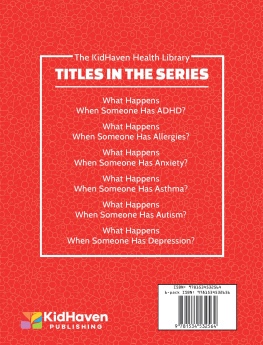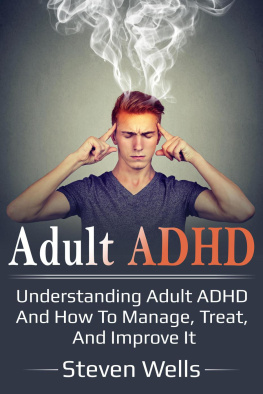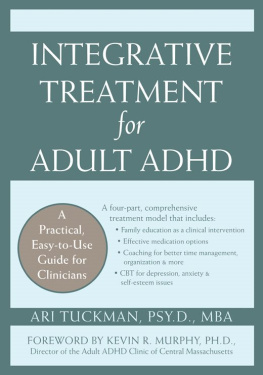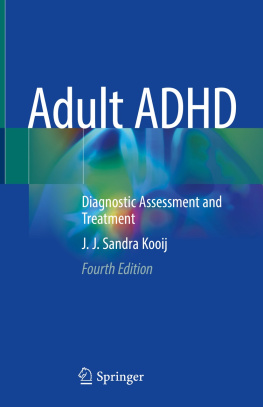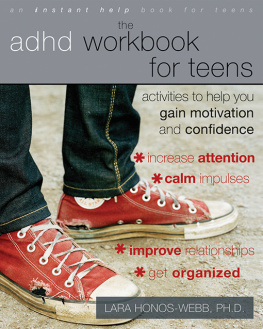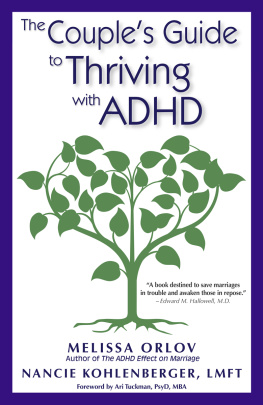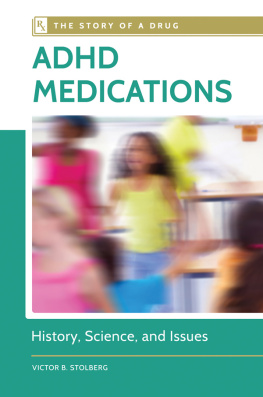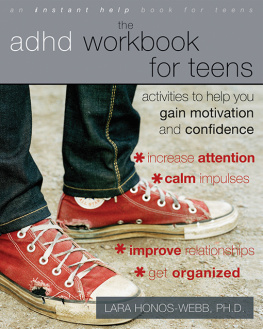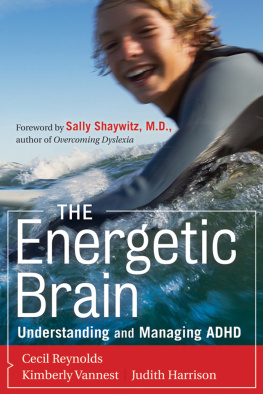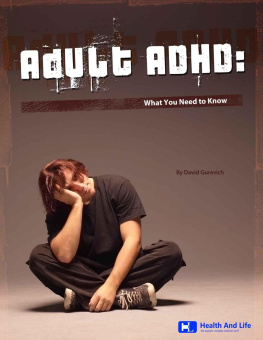Copyright 2019 by Laura MacNiven, J. Anne Bailey and Dr. Ainslie Gray
All rights reserved. No part of this publication can be reproduced or transmitted in any form or by any means, electronic or mechanical, including photocopying, recording or any other information storage and retrieval system, without prior permission in writing from the publisher.
The information in this volume is not intended as a substitute for consultation with healthcare professionals. Each individuals health concerns should be evaluated by a qualified professional.
Springboard Clinic
Suite 301, 1055 Yonge Street
Toronto, ON M4W 2L2
www.springboardclinic.com
ISBN 978-1-9995719-0-0 (paperback)
ISBN 978-1-9995719-1-7 (ebook)
eBook by Bright Wing Books
Chapter 1:
The Finding Yourself Model
At Springboard Clinic, we learned early on how important it is for you to own your journey. In too many instances, mental health diagnoses and treatments can feel top-down and more like the clinicians view than your own. We believe you are the expert of your world, and the Finding yourSELF model will help you assess who you are and what symptoms you experience and then build solutions that work for you.
Before we get into the actual stages of the Finding yourSELF model, lets examine how we define attention issues because, you see, Attention-Deficit/Hyperactivity Disorder doesnt really explain the root of the problem. It explains that you struggle with symptoms of inattention, hyperactivity and/or impulsivity more than the average person. But what do you do with this information? Give in to a reality where you just cant regulate your focus? Where you passively stand by while ADHD controls your life and identity? We dont think so. Lets take control and be informed.
Technically, there are three types of ADHD based on the Diagnostic and Statistical Manual of Mental Disorders, Fifth Edition: predominantly inattentive presentation, predominantly hyperactive/impulsive presentation and combined presentation. A list of symptoms helps clinicians identify which type of presentation of ADHD an individual meets criteria for.
Generally speaking, inattentive type tends to be symptoms that are categorized as inner restlessness, while hyperactive/impulsive often shows more visibly to others, with more symptoms of outward restlessness. The combined type is for individuals who struggle with both groupings of symptoms. Despite the different outward manifestations, all are a manifestation of the same brain difference (trouble regulating your ability to focus).
Attention issues are on a spectrum. Like depression, anxiety and many other mental health disorders, you can have mild to severe symptoms of ADHD. What is happening in your life or what you are trying to accomplish can make symptoms improve or worsen and can also make the impact of symptoms more evident. So, the severity of symptoms is individual, but also depends on environmental factors, life stressors and daily demands or responsibilities.
Once you understand that ADHD is something you can take control of, learn to work with and even master, you can start the process of healing, strategizing and believing in a better life for yourself.
So its not something that will make me a total failure? Not at all. In fact,
learning how to master your ADHD brain can put you in a position of advantage.
Were not saying its easy, and we definitely agree it can be unbelievably exhausting. But theres good news: ADHD often offers people the ability to access hyper-focusing, easily think and see outside the box and find solutions where others are stumped. To get there, youll need to do a few things, which this workbook will help you with: learn how to let down your defenses, admit where you struggle and put strategies and support systems in place, all while sorting out where you fit in.
Thats where the Finding yourSELF model comes in it helps you understand different pieces of your assessment and treatment journey. It is about you, about harnessing your strengths, coming to terms with your weaknesses, learning how to take responsibility for symptoms and maybe even learning to laugh at your quirks. This process involves separating yourself from your symptoms to help encourage and empower yourself in all aspects of your life.
To complete the Finding yourSELF methodology, you will work through these seven stages, chapter by chapter:
We hope these stages will help you process where you have come from and start to believe in a future where more of your intentions are put into action, where you can set individual limitations, start building sustainable habits and work toward a place of peace and joy. So many of our clients have found their way using the Finding yourSELF model, and we believe you will too.
It takes a lot of courage to seek help for mental health symptoms. And when you do open yourself, a diagnosis should bring answers to questions youve been trying to understand and put you in a position to move forward. There are, of course, no easy fixes having ADHD is daunting, frustrating and bewildering. You may have longstanding disappointments or feelings of anger. Even if you do feel hopeful, you may be afraid of letting yourself or others down.
Now its time to meet our friends: Jason, Candace, Tim and Amy. Imagine youre in a group program with these four. Connect with them, disagree with them or wonder alongside them. Their stories are meant to give you company, make you feel less alone, as you work through each chapter.
These fictional folks are not intended to be a full representation of ADHD, nor do they represent groups or the entire population. They do, however, share familiar stories weve heard from our clients over the years. So dont be surprised if you find yourself relating to these group members thats the whole point.
Jason
Jason is 21 and has a personality like a tornado, a name he earned when he was a local football star. Jason lives big and loves big. In fact, everything about Jason is big: his personality, his body, his voice. His booming laughter brings joy and energy to his family and friends. He has a way of reading situations, cheering for all those around him. Hes one of the most well-liked individuals in his community.
Jason had a couple secrets though. He always struggled with his schoolwork and became self-conscious about his body and eating habits. Despite his outward confidence and popularity, he hid feelings of shame about his struggles.
During his first year of university, Jason was unable to keep up with the pressure he felt to be the life of the party and to be so much to so many. As things worsened, he was drinking almost daily and binge eating. Although he was trying to find control in his life, he felt like it was impossible to live up to what others expected of him.
It all snowballed quickly. After suffering through an episode of depression during finals, failing too many first- and second-year courses and drinking more nights than not, Jason was sent home from university.
Grasping for answers and feeling uncertain about how he had let everything that mattered to him go, he reached for mental health support and was diagnosed with ADHD, the combined presentation. For a guy who cared so much, Jason was lost. Everything I touch turns to mud, he said. Every time I try to pick myself up, I fall harder the next time.
Next page


